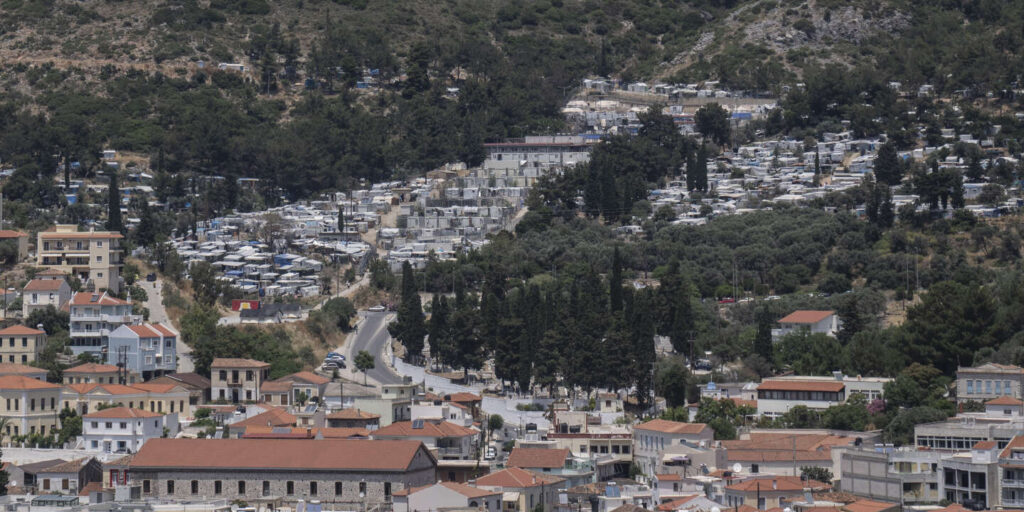For the first time in three years, the camps on the Greek islands near Turkey are once again full and unsanitary. In just three months, some 17,500 migrants have arrived in Greece via the Aegean Sea.
You can share an article by clicking on the share icons at the top right of it.
The total or partial reproduction of an article, without the prior written authorization of Le Monde, is strictly forbidden.
Two years after its inauguration with great fanfare, the enclosed camp of Zervou, on the island of Samos, which faces the Turkish coast, is no longer brand-new nor empty. The high-security site is, for the first time, overcrowded, bringing to mind the unsanitary conditions of the previous camp that overlooked the town of Vathy, where, at the peak of the 2015-2016 migration crisis, up to 10,000 refugees were crammed into makeshift shacks among garbage and rats.
Journalists, who were invited to the opening to see the improvement in conditions (modern containers with Wi-Fi and air conditioning), have now been banned from entering, which Reporters Without Borders denounced on Wednesday, October 4 as a “serious infringement of the right to information.” The Zervou compound, which is surrounded by barbed wire, currently accommodates over 4,000 migrants, although its initial stated capacity was 2,040.
According to the Ministry of Migration, around 17,500 asylum seekers arrived on the Greek islands near Turkey between July and September, compared with some 17,000 over the whole of 2022. According to the United Nations High Commissioner for Refugees, the number of arrivals on the Greek islands between January and July increased by 136% compared to the same period in 2022. While the migration minister is trying to reassure the Greek public, pointing out that the 30,000 migrants who have arrived since the start of the year are nothing like the 800,000 or so who landed in 2015, concerns about camp conditions are resurfacing.
Owen Breuil, a project coordinator for Doctors Without Borders in Samos, said, “The water supply is inadequate. Refugees often can’t shower or wash their clothes, which causes health problems. We have observed several cases of scabies, gastroenteritis and urinary tract infections, which are linked to this lack of hygiene.”
In early September, a doctor was finally assigned to the camp. “But for 4,000 people – and, furthermore, vulnerable populations, who suffer from high blood pressure, heart problems and post-traumatic stress – this is obviously not enough,” said Breuil.
Source: Le Monde


